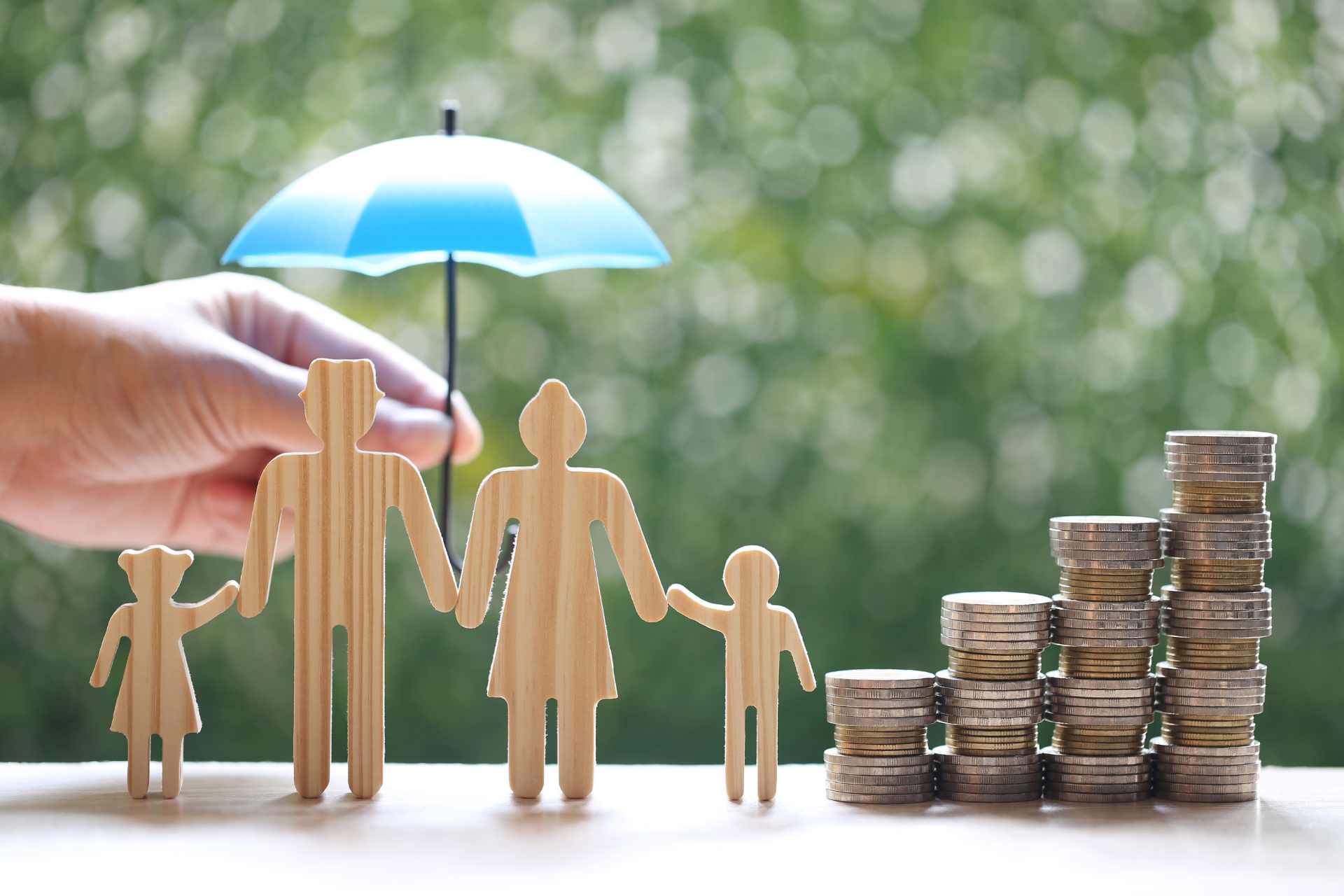When it comes to insurance, many people start with life insurance. The reasons for this are usually linked to inevitability, being the biggest concern and that is used to be conditional with some mortgage lenders (this is usually no longer the case).
In actual fact, an average person is more likely to be unable to work due to incapacity for two months or more than to pass away during a typical mortgage term. So what is income protection and why is it important?
What is income protection?
A simple way to think about income protection is it’s like sick pay.
It’s designed to make sure that you continue to receive an income if you are unable to work due sickness or incapacity and your earned income / sick pay benefit has stopped.
Essentially, this means that you could continue to maintain your costs and standards of living without having to worry about money during a difficult time.
A policy is set up to pay you a certain amount (sum assured) after a certain time (deferred period) for a certain duration (policy / payment term).
The amount you cover yourself for will usually be based on a percentage of your earnings. The waiting period and policy term will be based on factors such as your current sick pay arrangements, personal provisions, existing cover, retirement plans and budget.
Why is income protection important?
Take a look at your latest bank statement in terms of income and expenditure (hopefully you have more coming in than you have going out).
Now take the income figure away. This is likely to leave you with a large deficit.
Even if you take away non-essential expenses, this will usually still leave you with a large shortfall to cover the cost of essential living. This would include things like food, bills, mortgage/rent payments, clothing etc.
Think about the impact of not having an income for 6-12 months, let alone something more serious and longer term. How would you cope?
What about state benefits?
Although there might be some help via state benefits, this is usually only a fraction of what an average household requires. This is especially true for households with children.
However, you could add this figure back into your calculation to see if you still have a shortfall.
What about sick pay?
If you get sick pay, this is great news and the longer you have this for, the better.
However, the question should then be, what will happen after the sick pay stops?
What’s the plan?
Help from Family?
If this is the plan, has this been properly thought through?
For example, have you actually worked out what you would need (see the exercise above with regards to income and expenditure).
Multiply this figure by the amount of months that you could be off (use different scenarios up to retirement age) and this will give you an indication of what you could need in total.
Are you happy asking your family for this? Have you considered the impact this would have on them?
If so, have you actually asked the family member(s) in question whether they would be happy, or are in a position, to do this? It would be sensible to check this before relying on it.
Perhaps you might consider moving back in with Family. However, in most cases this rarely suits both parties as a long term solution. Afterall, why did you move out in the first place?
It’s important to have a discussion if this is the back up plan.
What about savings and investment?
If you have savings and investments then this could be used as an emergency fund.
However, using the same exercise as above, divide the savings by the amount of money you need to live and this gives you the length of time it will last. What happens beyond this?
Also, did you really build your savings/investment for this purpose?
‘I’ve never been sick – Do I need Income Protection?’
If you’ve never been off sick then that’s great news.
However, let’s be honest, unfortunately your past health should not be used as an indicator for your future health. It’s common knowledge that health risks get greater with age.
Furthermore, let’s take 100 people who have never been sick. It’s been said that on average, 1 in 2 of us will get Cancer. So let’s say 50 people out of a 100.
With optimism bias, none of these people think it will be them so nobody takes out cover, even though statistics suggest that half of them might need it.
‘What if I have income protection as an employee benefit?’
This is great news. In this case you may not need to take a personal policy as you could be fully covered through work (it’s important not to be over insured as you could be paying for cover that you may never be able to claim).
You just need to check the full details to make sure you are suitably covered in terms of the sum assured and the term.
Also be aware that if you leave the employer, the benefit is likely to stop so you need to review your arrangements at this time.
Is Income Protection the same as Payment Protection Insurance? (PPI)
Income protection is not the same as payment protection insurance.
Income protection premiums are paid on a monthly basis and can be stopped at any time without penalty.
The sums assured and policy are based on each person’s individual circumstances and should only be taken out where there is an insurable interest and is suitable for a person’s needs.
Summary
It’s important to consider the risks to your income, the potential impact and the back up plans you have in place.
If this raises any concerns, Income Protection could be worth considering for both peace of mind and providing you with the money you need, when you need it most.
Remember, when it comes to insurance – it’s better to have it and not need it, than to need it and not have it.




